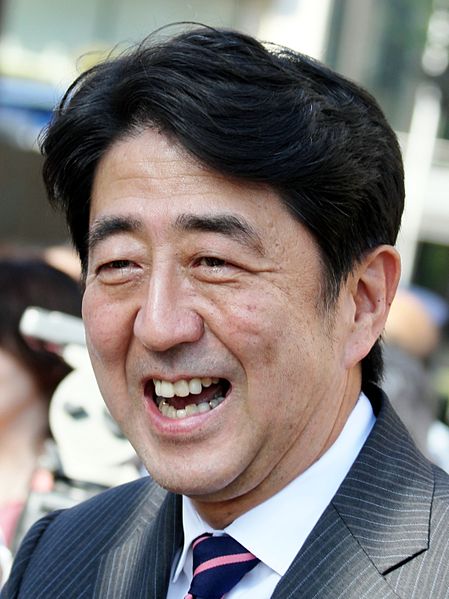The talk of the last decade has been about China and their increasing power on the political stage of Asia. Most of the countries in the region have little ability to directly challenge China when it comes to pure productive power and national wealth. Most, in fact, don’t even come close to China in any of the major political tools that matter. One country, however, is on the fast track to intercept China in its ambitions. Japan’s Prime Minister, Abe Shinzo, sees the looming threat of a China-controlled Asia and is taking steps to become the huge country’s largest competitor for power.
The biggest and most controversial move that Japan has been making as of late involves a marked increase in its military capabilities. This is particularly unsettling to many of Japan’s neighbors, as an active military presence goes against the policies that Japan has been following ever since the end of World War II. They’ve had a strict rule of keeping a minimal level of armament, but as China flexes its muscles and makes aggressive challenges against nearly all of its neighbors in territorial disputes, Japan is seeing the need to make sure that it doesn’t get swept under the carpet.
The first step of this change is for Japan to place itself as the military guide for the rest of the region. Most of the countries in Asia have very limited military power when compared with a powerhouse like China. Thus, Japan seeks to ally many countries together to increase their overall military presence. Being as how Japan’s past military exploits have been rather brutal, this is creating tension, mainly in South Korea and China. South Korea has a valid reason for being nervous, though this reason is more than 70 years old. China, however, is likely upset with the potential change due to its not wanting to have Japan as an actively military neighbor. Thus, their media is screaming that this is Japanese imperialism at work and that the world should be careful and prepare for another war if they allow it to continue.
Ironically enough, there are several other countries that are actually for a renewed militaristic Japan. Even though they’ve had their own problems with Japan back in WWII, places like Vietnam and the Philippines are happy to see a counter-balance to China’s rising military. These other countries can not defend themselves alone, and Japan has been increasingly generous with sharing military knowledge and technology as of late.

Economically, Japan is being just as aggressive with its push for power. They’ve already been actively courting India and Myanmar - two of the most desirable countries for investment right now - helping them with financing and infrastructure. They’ve been making every deal they can and playing a very active role in trading with these further away neighbors, directly competing with China for influence in these vast and untapped markets.
Japan has also been trying to step up the game where it comes to prestige within ASEAN, the Association of South-East Asian Nations. More power there means more direct influence on the region via the support of other ASEAN members. In order to combat China directly, Japan’s companies have been taking a more active role. Approximately one-third of Japanese businesses either currently doing business or planning to do business in China have halted or cancelled their plans there, placing their investments elsewhere. This allows Japan to both hurt China and help themselves gain clout with potential allies at the same time.
To top off the power grab, Japan is putting more investment into Africa, again challenging the large Chinese presence there. The continent of Africa is likely to become the next bastion of cheap labor, since Southeast Asia is developing and demanding increased wages. Japan is showing their commitment to taking advantage of future developments by investing more than $32 billion - still far behind China, but a solid foundation.
And as a final play, Japan is petitioning to host the 2020 Summer Olympics. This would gain them prestige within the international community as a whole as well as making them look good within the eyes of East Asia, bringing the games back to the region. It would, if successful, be the first time that Japan has hosted the games since 1964.
Carefully making allies with everyone that they can, Japan is setting itself up for a much larger role in Asia’s future. They are both economically and militarily preparing for an eventual showdown with China, a country that’s not likely to give up on its ambitions of Asian hegemony. China, with its aggressive policies, is driving away its neighbor’s approval, giving Japan the perfect chance to bring many countries together with one overarching goal - stop China from becoming the biggest dog on the block.
Japanese flag courtesy of Vera Kratochvil via Wikicommons
Abe Shinzo photo courtesy of TTTNIS via Wikicommons



0 comments